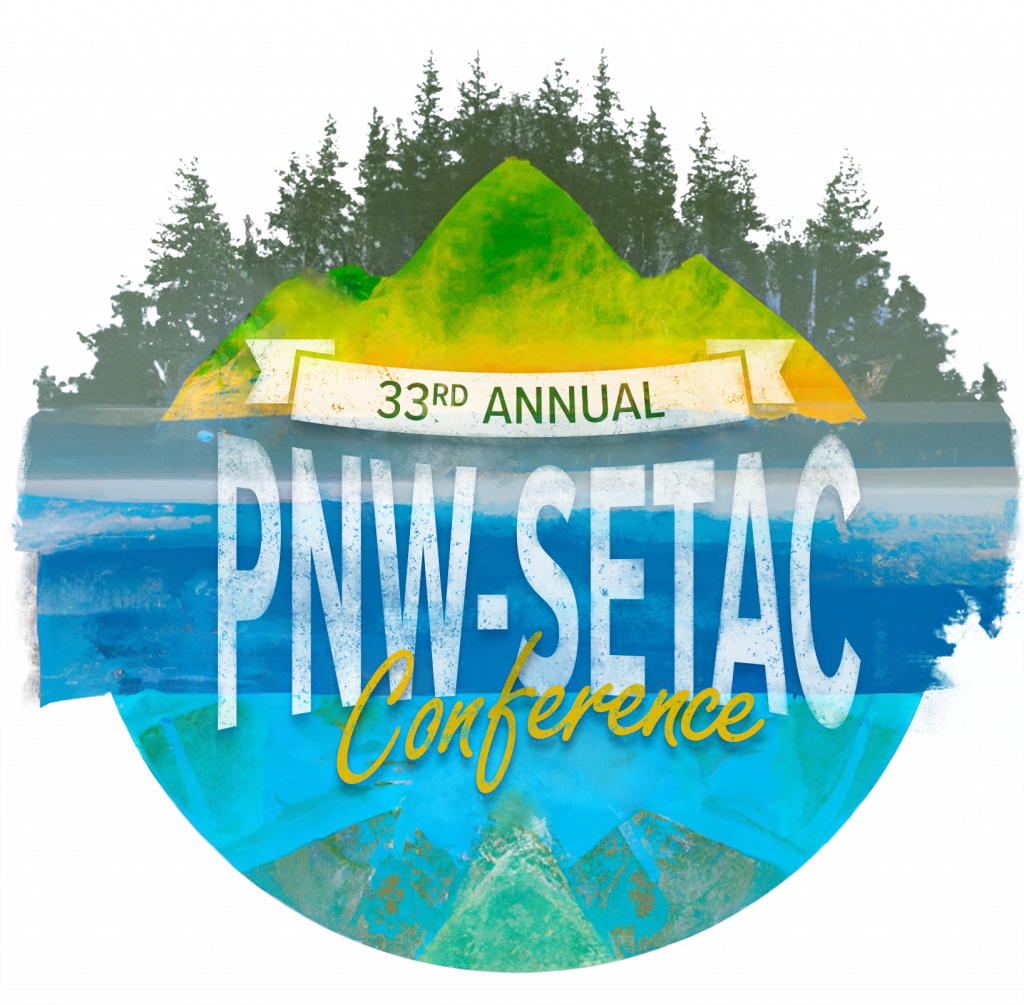
Our Annual Meeting celebrates ever-evolving environmental toxicology and chemistry and its role in making the region we inhabit a healthier, more resilient place.
The 33rd Annual PNW SETAC conference just wrapped up and it was an energetic and interesting three days, permeated by stunning spring sun and new friendships and connections.
We will update this page shortly and extend our congratulations to our Student Award winners.
2024 Student Presentation Award Winners
Posters:
Briana Benner, Western Washington University (1st Place Poster Undergraduate)
Amanda Gannon, Portland State University (1st Place Poster Masters)
Lauren Kashiwabara, Oregon State University (2nd Place Poster PhD)
Miranda Jackson, Oregon State University (1st Place Poster PhD)
Platform presentations:
Chloe Kotik, University of Alaska Fairbanks (1st Place Lightening)
Holly Suther, Western Washington University (1st Place Platform MS)
Lillian Pavord, Washington State University (2nd Place Platform MS)
Mackenzie Morshead, Oregon State University (1st Place Platform PhD)
Agenda and Meeting Program
Please see the updated Agenda HERE.
The Meeting Program is now available!
Please read it HERE.
SHORT COURSE: The short course PowerPoint will be posted here shortly.
| From the basics to the state-of-the-science on micro and nanoplastics research | Stacey Harper & Susanne Brander |
You can read more about Dr. Harper and Dr. Brander using these links.
For the last two years, we glimpsed at how issues associated with toxics and chemistry are inextricably connected to the natural world, the material economy, and human health. Nearly every challenge we face is associated with what a product is made of, how it’s used, and its pollution pathways (fate and transport) which culminate in cumulative impacts on the whole ecosystem—critters and humans alike, as well as the ecological envelope that sustains all of us.
While we speak euphemistically about “management,” the continuum of change and the multiple pathways by which science drives and responds to change, is quite complex and demands a more persuasive, community-embedded, and layered approach.
While regulations are often the first place we like to go in these discussions, there is considerable value in changing incentives, how the issues are framed, and inviting other disciplines and communities into our conversations meaningful ways. But the first step in that change trajectory is unlocking our science and connecting it with the values and lives of the people and institutions who are change agents for good. We need to unlock their potential.
Our Generous Sponsors
Thank you to all our sponsors!
Orca Level Sponsors
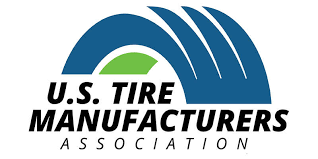
The U.S. Tire Manufacturers Association is the national trade association for tire manufacturers that produce tires in the United States. USTMA members operate 57 facilities in 17 states, are responsible for more than 291,000 jobs, and have an annual economic footprint of $170.6 billion. Our mission is To strengthen the competitiveness, societal impact, and reputation of the U.S. tire manufacturing industry. Our vision is to be the premier advocate, trusted voice, and thought leader for the U.S. tire manufacturing industry. Advancing safe, sustainable mobility for the future

Oregon State University Department of Environmental and Molecular Toxicology The integrated mission of the Department of Environmental & Molecular Toxicology (EMT) is to educate students in the toxicological sciences, to conduct research on the effects of chemicals and other agents on humans and the environment and to engage the public through extension and outreach. The EMT Department focuses on creating, disseminating, and applying new knowledge to enhance the treatment and prevention of human disease and to ensure the protection of the environment and public health.
Chinook Level Sponsors
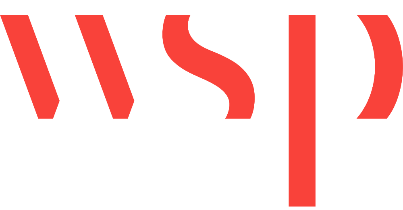
WSP WSP USA is the U.S. operating company of WSP, one of the world’s leading engineering, environment, and professional services firms. Recognized in 2023 on TIME’s list of the world’s best companies and Fortune’s Change the World list, WSP is driving social impact and commitment to ESG. WSP in the U.S. brings together engineers, planners, technical experts, strategic advisors, and construction management professionals who are dedicated to collaborating in the best interests of serving local communities. WSP designs lasting solutions in the buildings, transportation, energy, water, and environmental markets. With approximately 14,000 employees in 300 offices across the U.S., WSP partners with its clients to help communities prosper.
Chinook Level Sponsors
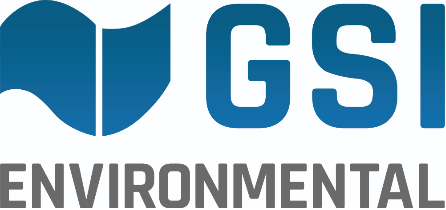
GSI Environmental Inc. (GSI) is an engineering and environmental science consulting firm committed to investigating, analyzing, and solving complex environmental problems around the globe. Our work ranges from practical solutions for environmentally sound industrial operations and property development to toxicological analysis and management of chemical hazards, sustainable development of water and other natural resources, and protection of our rivers, bays, and estuaries. Our staff combines practical know-how with leading-edge research to deliver timely, innovative, and focused solutions to your environmental challenges.

Anchor QEA is an environmental science and engineering consulting firm working to improve the
environment and our communities. Our vision is to be a growing company that is
our clients’ first choice for solving their most challenging problems and our
employees’ first choice as a company where they want to work.

Teck American Incorporated Teck is one of Canada’s leading mining companies, focused on providing products that are essential to building a better quality of life for people around the globe.
Heron Level Sponsors

EcoAnalysts’ team of environmental scientists, biologists, toxicologists, and technicians work together to provide our clients scientifically unbiased data and assist them with making informed decisions.

Nautilus Environmental Company, Inc. is a Canadian-based biological testing, research, and consulting company that performs environmental toxicological and microbiological tests that are required for regulatory compliance, as well as performing applied research to address specific project needs.

Eurofins Environment Testing (EET) works continually to deliver advanced technical expertise and analytical services to clients across the US. As your global leader in environmental testing, we pride ourselves on three main areas of differentiation: Technology, Service and Geography. Through our sustained investment in people, technology, instrumentation, and infrastructure, EET laboratories are positioned to support clients easily in both the public and private sectors.
Kingfisher Level Sponsors
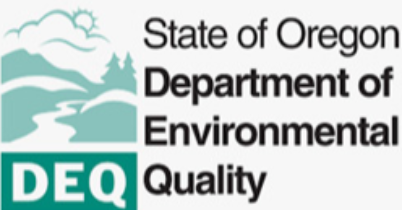
The Oregon Department of Environmental Quality’s mission is to be a leader in restoring, maintaining and enhancing the quality of Oregon’s air, water and land. DEQ works with all Oregonians to provide a healthy, sustainable environment that supports a diverse economy
Kingfisher Level
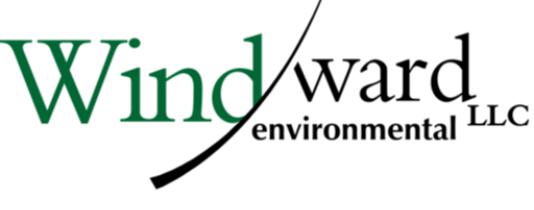

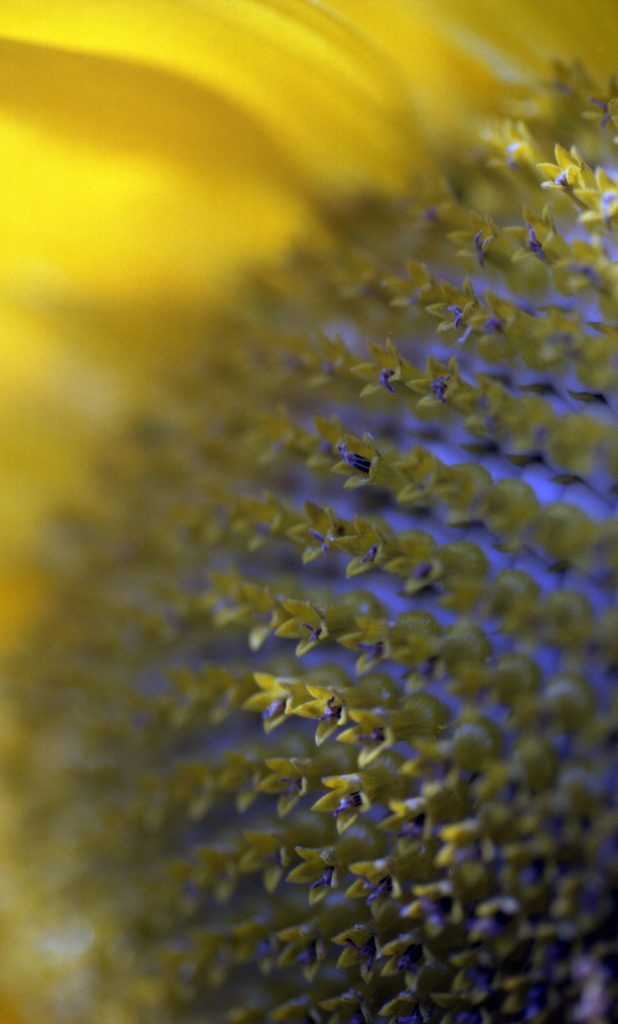
Plenary Speaker
We are pleased to announce our plenary speaker, Dr. Sarah Marie Wiebe, for this year’s conference.

Pollution Exposure and Democratic Deliberation: The Promises and Paradoxes of Public Engagement, Lessons from Canada’s Chemical Valley for Environmental Justice
Dr. Sarah Marie Wiebe grew up on Coast Salish territory in British Columbia, BC. She is an Assistant Professor in the School of Public Administration at the University of Victoria and an Adjunct Professor at the University of Hawai’i, Mānoa with a focus on community development and environmental sustainability. She is a Co-Founder of the FERN (Feminist Environmental Research Network) Collaborative and a Board Member of the Climate Disaster Project. Her book Everyday Exposure: Indigenous Mobilization and Environmental Justice in Canada’s Chemical Valley (2016) with UBC Press won the Charles Taylor Book Award (2017) and examines policy responses to the impact of pollution on the Aamjiwnaang First Nation’s environmental health.
This year, as well as last year, we take a glimpse at how issues associated with toxics and chemistry are inextricably connected to the natural world, the material economy, and human health. Nearly every challenge we face is associated with what a product is made of, how it’s used, and its pollution pathways (fate and transport) which culminate in cumulative impacts on the whole ecosystem—critters and humans alike, as well as the ecological envelope that sustains all of us.
While we speak euphemistically about “management,” the continuum of change and the multiple pathways by which science drives and responds to change, is quite complex and demands a more persuasive, community-embedded, and layered approach.
While regulations are often the first place we like to go in these discussions, there is considerable value in changing incentives, how the issues are framed, and inviting other disciplines and communities into our conversations in a meaningful way. But the first step in that change trajectory is unlocking our science and connecting it with the values and lives of the people and institutions who are change agents for good. We just need to unlock their potential.
Environmental Justice Panel
Please welcome our panelists who will address environmental justice considerations:







Take a look at the deep learning and festivities from last year.